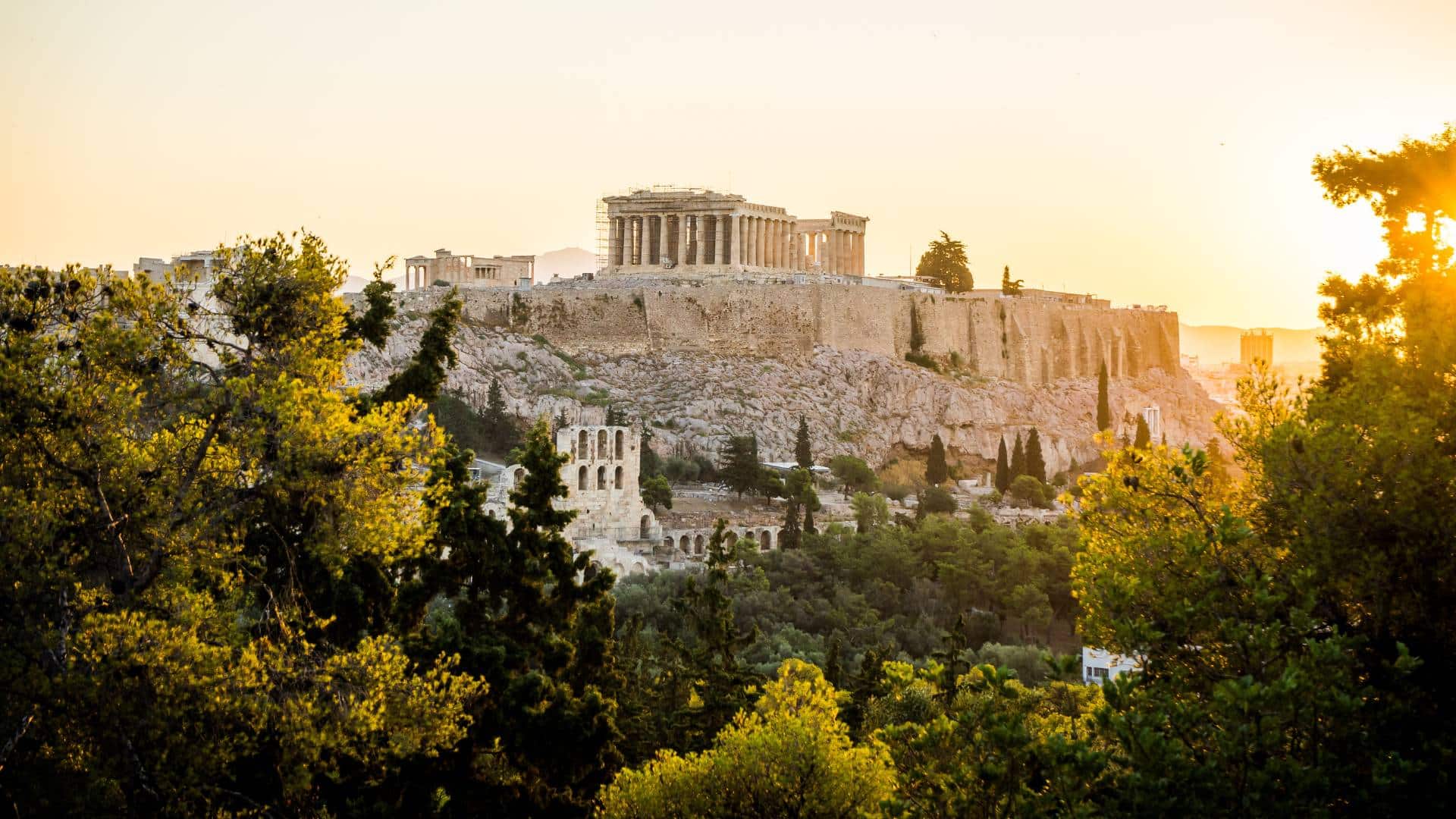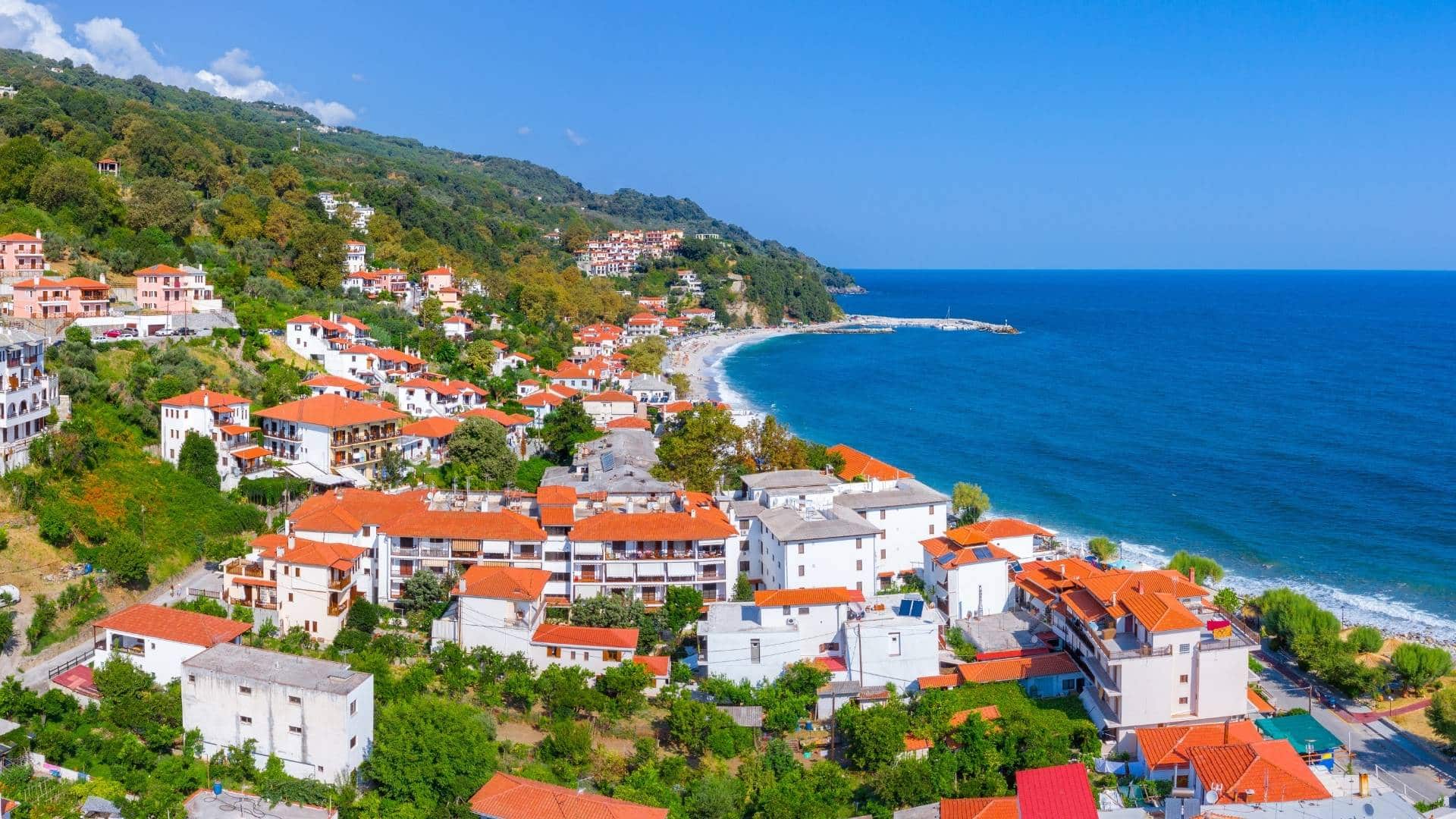Thessaloniki: A Gateway to Greece’s Historical Riches
Thessaloniki, Greece’s second-largest city, offers a mix of ancient and Byzantine history. Its White Tower, Arch of Galerius, and Rotunda are prime examples of its historical significance. As a crossroads between East and West, Thessaloniki played a crucial role in shaping Greek culture and remains a vital hub of historical monuments.
Vergina: The Ancient Royal Tombs of Macedonia
Vergina, the ancient capital of Macedon, is home to the royal tombs, including that of Philip II, father of Alexander the Great. This UNESCO World Heritage site offers a glimpse into the grandeur of the Macedonian empire, showcasing the rich history and artistry of its time.
Meteora Monasteries: Unique Historical Sites in Central Greece
The Meteora monasteries, perched on towering rock formations in central Greece, were built in the 14th century. These monasteries are known for their architectural innovation and the religious devotion of the monks who once inhabited them. Today, they stand as a testament to Byzantine culture and offer visitors an extraordinary blend of spirituality and history. Meteora is now a UNESCO World Heritage site and a must-visit for anyone exploring historical heritage of Greece.
Acropolis of Athens: A Testament to Ancient Democracy
The Acropolis of Athens stands as a symbol of ancient Greece’s power and artistic achievement. Built in the 5th century BCE, it houses the Parthenon, dedicated to Athena. This site embodies democracy and Western civilization, making it the most important historical site in Greece. Over time, the Acropolis has served as a fortress, a church, and a mosque.
Delphi: The Omphalos of the Ancient World
Delphi was considered by the ancient Greeks to be the center of the world. Famous for the Oracle of Apollo, it was a spiritual hub where people from across Greece sought divine guidance. The Temple of Apollo, the ancient theater, and the stadium are key highlights of this extensive archaeological site. Its role in shaping ancient Greek religion and politics makes Delphi one of the most historically significant sites in Greece.
Olympia: Where Sports and History Meet in Greece
Olympia is best known as the birthplace of the Olympic Games, which were first held here in 776 BCE. As a sanctuary dedicated to Zeus, the site was an important religious center in ancient Greece. The ruins of the stadium, the gymnasium, and the Temple of Zeus still stand as a testament to Greece’s athletic and religious traditions. Olympia offers a fascinating look into how sport and religion intertwined in ancient times.
Mycenae: A Legendary Historical Monument in Greece
Mycenae, located in the northeastern Peloponnese, is one of the most historically significant cities of the ancient world. This city is linked to the legendary King Agamemnon and the Trojan War. Visitors to Mycenae can explore the Lion Gate, the Royal Palace, and the famous tholos tombs. These structures provide a glimpse into the Mycenaean civilization, which predates Classical Greece and heavily influenced its culture and mythology.
Nafplio: Greece’s First Capital and Cultural Gem
Nafplio, once the first capital of modern Greece, is a coastal town rich in history. Its Palamidi Fortress, Bourtzi Castle, and Venetian architecture are testaments to its strategic importance over centuries. Visitors can explore the old town’s narrow streets, offering a unique blend of medieval and neoclassical history.
Epidaurus: The Theater of Sound
Known for its exceptional acoustics, the ancient theater of Epidaurus is one of Greece’s most well-preserved historical monuments. It continues to host performances of classical Greek tragedies, echoing the cultural traditions of ancient Greece. The theater is part of the wider sanctuary dedicated to Asklepios, the god of medicine, making Epidaurus a cultural and healing center in antiquity. Visitors today can experience both the artistic and medical significance of this site.
Exploring Historical Sites in Greece: Tips for a Meaningful Visit
When planning your visit, prioritize early morning arrivals to avoid crowds at popular sites like the Acropolis and Delphi. Wear comfortable shoes, as many historical sites involve walking on uneven ground. For a more immersive experience, consider joining a small group tour led by expert guides who provide deeper insights into each site’s historical context.
The Benefits of Small Group Tours
Exploring Greece’s historical sites through small group tours can enhance your experience, providing personalized guidance and in-depth knowledge. Small groups ensure that you can delve into the rich history of these locations with expert guides, offering a more immersive and insightful journey.
Why Choose Offbeat Travel?
Offbeat Travel specializes in small group tours that focus on Greece’s most famous historical sites. Our tailor-made tours ensure that every traveler enjoys a detailed and immersive experience, whether walking through the ancient streets of Mycenae or marveling at the beauty of the Meteora monasteries. Let us guide you on a journey through Greece’s most treasured historical landmarks, bringing history to life along the way.



